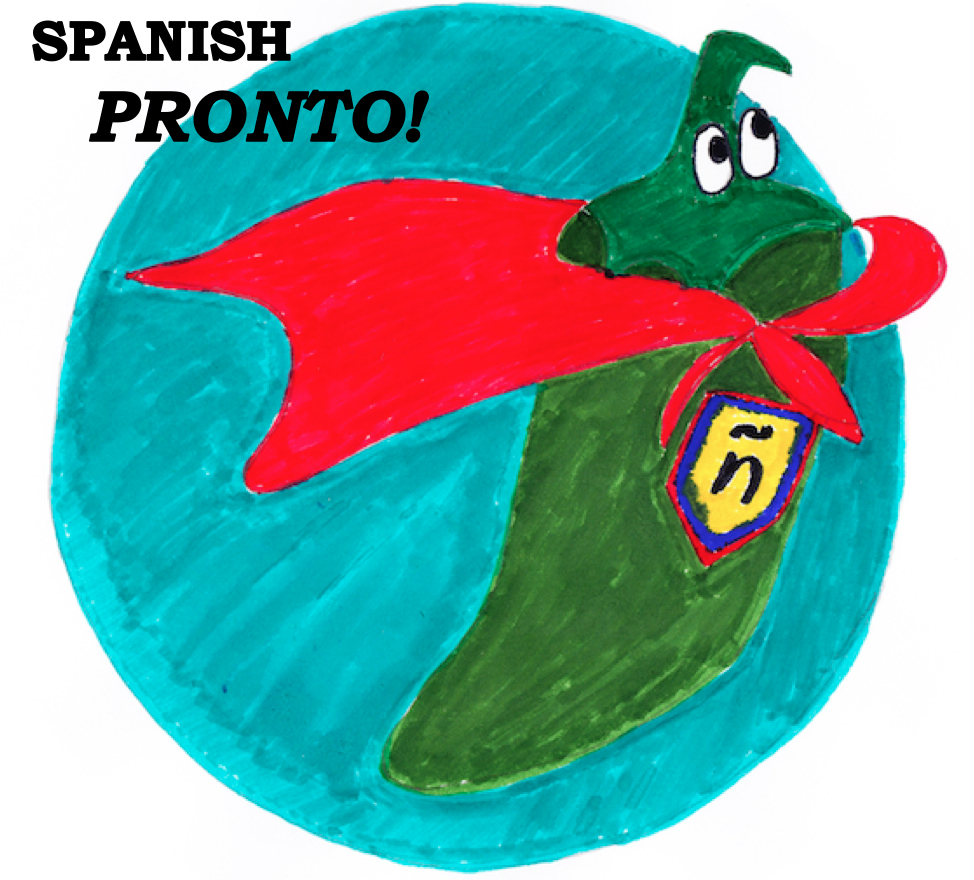
Spanish Vocabulary
Learn 10 Spanish words per day and know 2,500 words after one year!Many words in Spanish and English are similar, but similar words can have very different meanings, so be careful.
tenía he/she/it/you(formal) had; was having, were having; used to havetenían they/you all(formal) had; were having; used to have
será he/she/it/you(formal) will be
serán they/you all(formal) will be
Juan John
Carlos Charles
ello neuter it [for abstract (not concrete) things]
ejemplo example
habían they/you all(formal) had [verbed, been verbing, etc.]
ley f. law
Words pronunciation: 0:19 (19s)
From here on out, the word lists will feel a bit more random, appearing more or less in order of frequency. Although it is helpful, for example, to learn verb conjugation tables for each verb, most verb conjugations do not appear in the 2,500 most common Spanish words, which are the emphasis of this course. (There are, however, plenty of verb conjugation tables elsewhere, and even whole verb conjugation books.) Likewise, most vocabulary on any particular topic will also fall outside of these most common words. Here we will stick to the truly most common ones.
Juan and Carlos are among these most common words not just because they are popular names, but also because the King of Spain from 1975 to 2014 was Juan Carlos I, and so undoubtedly appeared often in the Spanish press.
'Ello' is 'it' when the it you are referring to is a previously mentioned situation or sentence. Individual words (nouns) in Spanish are almost always either masculine or feminine. However, groups of words, or entire situations, are considered to be of neuter gender: And that is why words like 'ello' exist. Y es por ello que existen palabras como 'ello'. ('And it is for that [reason] that there exist words like 'ello.')
'It,' for specific (concrete) things, however, is expressed as 'él' or 'ella' when 'it' is used as a subject (or, more commonly, not expressed directly at all), and as 'lo' or 'la' when 'it' is used as a direct object. English speakers often resist the idea of 'it' having gender, which can lead them to underuse these more common forms 'él' and 'ella,' 'lo' and 'la,' and overuse (use incorrectly) the neuter form.
'Habían' is sometimes used incorrectly, even by native speakers, to say 'there were.' This is incorrect!! Whether you want to say 'there was' one thing or 'there were' several things, in either case you should always use 'había': Había cincuenta estudiantes en el aula. There were fifty students in the classroom.
'Habían' is used only as the auxiliary (helping) verb 'had,' when 'they' or 'you all (formal)' 'had done' something, or 'had been doing' something.
cuando vivía en Tennessee ella tenía un perro y dos caballos when she lived (used to live) in Tennessee, she had a dog and two horsesantes tenían problemas, pero ahora no they used to have problems, but not anymore ('before they used to have [were having] problems, but now not')
la reunión será a las diez y media the meeting will be at 10:30
en la boda, Miguel y Elena serán nuestros testigos at the wedding, Miguel and Elena will be our witnesses
no he vuelto a pensar en ello en muchos años I have not thought about it again for many years ('not I have returned to think about it in many years')
ella es buen ejemplo para los otros niños she is a good example for the other children
ya habían decorado la casa para la fiesta they had already decorated the house for the party
no puedo cambiar las leyes de la física I cannot change the laws of physics
Examples pronunciation: 0:39 (39s)
© 2017-2018 Chris Marquardt, Spanish Pronto
http://www.spanishpronto.com/vocabulary_0001.html
http://www.spanishpronto.com/vocabulary_0002.html
http://www.spanishpronto.com/vocabulary_0003.html
http://www.spanishpronto.com/vocabulary_0004.html
http://www.spanishpronto.com/vocabulary_0005.html
http://www.spanishpronto.com/vocabulary_0006.html
http://www.spanishpronto.com/vocabulary_0007.html
http://www.spanishpronto.com/vocabulary_0008.html
http://www.spanishpronto.com/vocabulary_0009.html
http://www.spanishpronto.com/vocabulary_0010.html
http://www.spanishpronto.com/vocabulary_0011.html
http://www.spanishpronto.com/vocabulary_0012.html
http://www.spanishpronto.com/vocabulary_0013.html
http://www.spanishpronto.com/vocabulary_0014.html
http://www.spanishpronto.com/vocabulary_0015.html
http://www.spanishpronto.com/vocabulary_0016.html
http://www.spanishpronto.com/vocabulary_0017.html
http://www.spanishpronto.com/vocabulary_0018.html
http://www.spanishpronto.com/vocabulary_0019.html
http://www.spanishpronto.com/vocabulary_0020.html
http://www.spanishpronto.com/vocabulary_0021.html
http://www.spanishpronto.com/vocabulary_0022.html
http://www.spanishpronto.com/vocabulary_0023.html
http://www.spanishpronto.com/vocabulary_0024.html
http://www.spanishpronto.com/vocabulary_0025.html
http://www.spanishpronto.com/vocabulary_0026.html
http://www.spanishpronto.com/vocabulary_0027.html
http://www.spanishpronto.com/vocabulary_0028.html
http://www.spanishpronto.com/vocabulary_0029.html
http://www.spanishpronto.com/vocabulary_0030.html
http://www.spanishpronto.com/vocabulary_0031.html
http://www.spanishpronto.com/vocabulary_0032.html
http://www.spanishpronto.com/vocabulary_0033.html
http://www.spanishpronto.com/vocabulary_0034.html
http://www.spanishpronto.com/vocabulary_0035.html
http://www.spanishpronto.com/vocabulary_0036.html
http://www.spanishpronto.com/vocabulary_0037.html
http://www.spanishpronto.com/vocabulary_0038.html
http://www.spanishpronto.com/vocabulary_0039.html
URL for this page: http://www.spanishpronto.com/vocabulary_0028.html